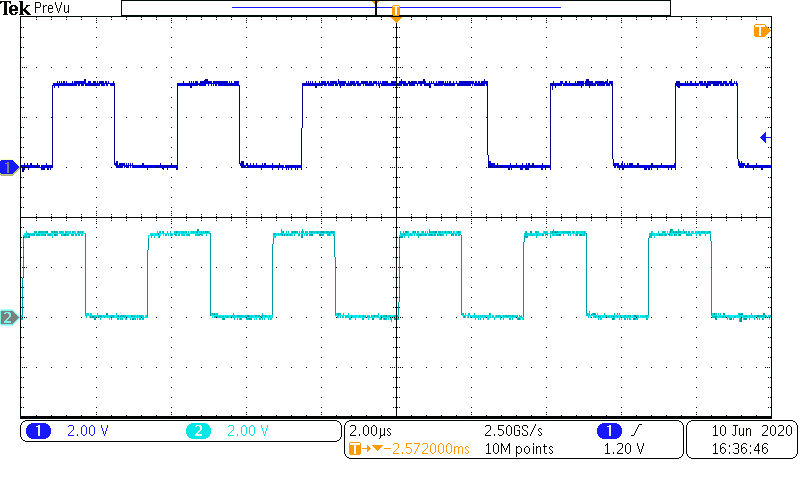Tool/software: Code Composer Studio
Hello,
I am running an ac-dc converter which requires the phase-shift between its two half-bridges to be modulated to perform PFC. The PWMs are supposed to be of 50% duty ratio all the time. However, as shown in the attached image the PWM for one of the legs remains spuriously high for the entire switching period (happens a few times every line cycle) resulting in malfunctioning of the converter. The other leg's PWM works fine throughout. Any comments or suggestions to mitigate this issue is appreciated. Thanks.

